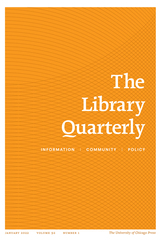
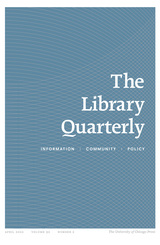
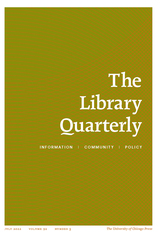
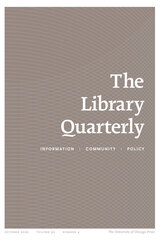
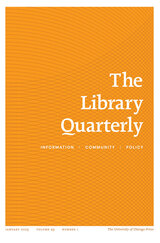
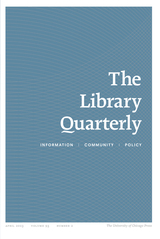
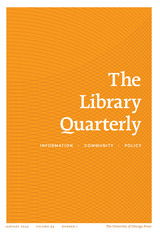

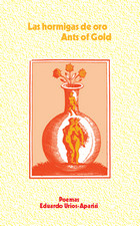

Although the two great commandments to love God and to love our neighbors as ourselves are central to Christianity, few theologians or spiritual writers have undertaken an extensive account of the meaning and forms of these loves. Most accounts, in fact, make love of God and love of self either impossible or immoral. Integrating these two commandments, Edward Vacek, SJ, develops an original account of love as the theological foundation for Christian ethics.
Vacek criticizes common understandings of agape, eros, and philia, examining the arguments of Aquinas, Nygren, Outka, Rahner, Scheler, and other theologians and philosophers. He defines love as an emotional, affirmative participation in the beloved's real and ideal goodness, and he extends this definition to the love between God and self. Vacek proposes that the heart of Christian moral life is loving cooperation with God in a mutually perfecting friendship.
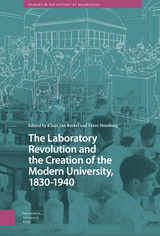
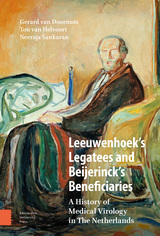

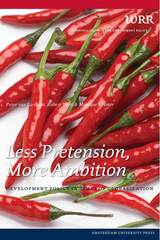
On some levels, the accepted role of development aid has been supplanted by the increase of individual remittances and foreign direct investment, as well as by policies that focus on issues such as climate, migration, financial stability, knowledge, trade, and security in order to increase opportunities in struggling countries. This study considers such changes and examines the effectiveness of aid and its role in international power relations. The editors and contributors close the book by proposing new strategies for development aid in the era of globalization.

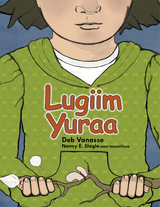
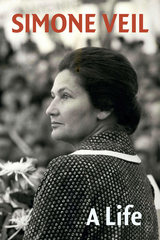
Veil was one of France’s most beloved public figures, most admired for her personal and political courage. Her memoir, published here in English for the first time, is a sincere and candid account of an extraordinary life and career, reflecting both her humanity and her determination to improve social standards at home and maintain economic and political stability in Europe. In the wake of her passing in 2017, this translation of her memoir stands as a fitting tribute to an unparalleled life of survival, selflessness, and unwavering public service.
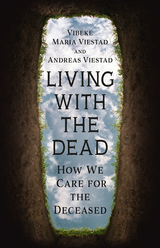
Death is universal. It will meet us all. But it’s also a practical problem—what do we do with dead bodies? Vibeke Maria and Andreas Viestad live by a cemetery and are daily spectators of its routines, and their fascination with burials has led them to dig deep to examine our relationship with the dead. Taking us on a journey around the world and into the past, the Viestads explore how the deceased are honored and cared for, cremated, and buried. From archaeological sites in Spain, Israel, and Russia to environmentally friendly burials in the United States and Ghana’s fantasy coffins, and from cremations without fire to the new industry turning our dearly departed’s ashes into diamonds, this empathetic and enthralling book is for anyone who knows their turn is coming, but who’d like a good book for the journey.


Land and Sea was first published in 1978. Minnesota Archive Editions uses digital technology to make long-unavailable books once again accessible, and are published unaltered from the original University of Minnesota Press editions.
Although Philip Freneau is best known as the poet of the American Revolution, half his poems had nothing to do with the war, Professor Vitzthum points out, and this, the first systematic, in-depth study of Freneau's lyric poetry, provides a fresh perspective on the poet's non-political work. Demonstrating that there is a heretofore unrecognized pattern of land-sea imagery and symbolism in Freneau's best work. Professor Vitzthum traces changes reflected in this imagery to developments in the poet's thought, which in turn related to major intellectual and literary trends in revolutionary and early republican America. An introductory chapter assesses twentieth century biographical and critical estimates of Freneau, outlines the key themes in his work, and links his thirty-year career as sailor and ship captain to his creation of a covert, symbolistic poetic method. The following five chapters chronologically discuss Freneau's non-political poems from 1772 through 1815. Professor Vitzthum concludes that Freneau was not the derivative and unsuccessful artist he is currently thought to have been but, rather, one of America's genuinely important poets.
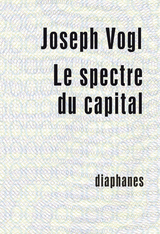

Le Capital de Sergueï Eisenstein (1927-1928) est un fantôme à plus d’un titre: bien que le film n’ait jamais été réalisé, il a néanmoins hanté l'imagination de nombreux cinéastes, historiens et écrivains jusqu’à aujourd’hui et même récemment avec les Nouvelles de l’Antiquité idéologique : Marx – Eisenstein – Le Capital d’Alexander Kluge. De plus, sa première matérialisation publique – un fragment d’une dizaine de pages issu des carnets du réalisateur – était marquée par ce qui demeurait absent : les images et le matériau de travail d’Eisenstein.
La Danse des valeurs ambitionne d’invoquer à nouveaux frais le fantôme du Capital mais en se fondant cette fois-ci sur l’ensemble de son corps d’archives. Cette « instruction visuelle à la méthode dialectique », selon les mots-mêmes d’Eisenstein, comprend plus de 500 pages de notes, de dessins, de coupures de presse, de diagrammes d’expression, de plans d’articles, de négatifs d’Octobre, de réflexions théoriques et de longues citations. La Danse des valeurs explore la nécessité formelle qui sous-tend les choix d’Eisenstein dans le Capital. Sa lecture fait valoir que sa complexité visuelle ainsi que son efficacité épistémique résident précisément dans l’état de son matériau : une danse de thèmes hétérogènes et de fragments disparates, un flux non-linéaire, provisoire et inarticulé.
Les séquences visuelles d’archives, publiées ici pour la première fois en France, ne sont pas bâties à titre de simples illustrations, mais en tant qu’arguments à part entière, donnant à voir ce qui se joue pour Eisenstein dans le Capital : une théorisation visuelle de la valeur. Une lecture des archives d’Eisenstein, dans leur logique interne, permet non seulement de reconstituer des éléments morphologiques présents dans le concept de valeur chez Marx, mais également de théoriser une crise plus fondamentale de la représentation politique, un présent qui s’étend de son contexte contemporain jusqu’à nos jours. Mettant en œuvre un procédé morphologique sans équivoque, les séquences de montage d’Eisenstein produisent une sorte de plus-value qui leur est propre, un excès sémiotique qui brasse les matériaux et présente les corps dans une danse analogue à la « danse » des « conditions pétrifiées » de Marx. C’est dans ce langage polymorphe et « diffus » – associé au stream of consciousness de l’Ulysse de Joyce – qu’Eisenstein perçoit le potentiel critique et affectif d’un cinéma à venir.

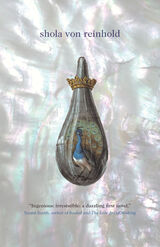

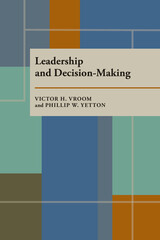
It has become a truism that “leadership depends upon the situation,” but few behavioral scientists have attempted to go beyond that statement to examine the specific ways in which leaders should and do vary their behavior with situational demands. Vroom and Yetton select a critical aspect of leadership style-the extent to which the leader encourages the participation of his subordinates in decision-making. They describe a normative model which shows the specific leadership style called for in different classes of situations. The model is expressed in terms of a “decision tree” and requires the leader to analyze the dimensions of the particular problem or decision with which he is confronted in order to determine how much and in what way to share his decision-making power with his subordinates.
Other chapters discuss how leaders behave in different situations. They look at differences in leadership styles, and what situations induce people to display autocratic or participative behavior.
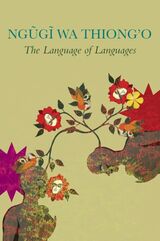
Through his many critically acclaimed novels, stories, essays, plays, and memoirs, Kenyan writer Ngũgĩ wa Thiong’o has been at the forefront of world literature for decades. He has also been, in his own words, “a language warrior,” fighting for indigenous African languages to find their rightful place in the literary world. Having begun his writing career in English, Ngũgĩ shifted to writing in his native language Gikũyũ in 1977, a stance both creatively and politically significant. For decades now, Ngũgĩ has been translating his Gikũyũ works into English himself, and he has used many platforms to champion the practice and cause of literary translations, which he calls “the language of languages.”
This volume brings together for the first time Ngũgĩ’s essays and lectures about translation, written and delivered over the past two decades. Here we find Ngũgĩ discussing translation as a conversation between cultures; proposing that dialogue among African languages is the way to unify African peoples; reflecting on the complexities of auto-translation or translating one’s own work; exploring the essential task translation performed in the history of the propagation of thought; and pleading for the hierarchy of languages to be torn down. He also shares his many experiences of writing across languages, including his story The Upright Revolution, which has been translated into more than a hundred languages around the globe and is the most widely translated text written by an African author. At a time when dialogues between cultures and peoples are more essential than ever, The Language of Languages makes an outspoken case for the value of literature without borders.
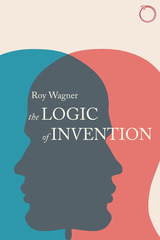
Wagner explores what he calls “the reciprocity of perspectives” through a journey between Euro-American bodies of knowledge and his in-depth knowledge of Melanesian modes of thought. This logic grounds variants of the subject/object transformation, as Wagner works through examples such as the figure-ground reversal in Gestalt psychology, Lacan’s theory of the mirror-stage formation of the Ego, and even the self-recursive structure of the aphorism and the joke. Juxtaposing Wittgenstein’s and Leibniz’s philosophy with Melanesian social logic, Wagner explores the cosmological dimensions of the ways in which different societies develop models of self and the subject/object distinction. The result is a philosophical tour de force by one of anthropology’s greatest mavericks.

Embedded in a powerfully modulated sequence addressing a “you” who shifts in location and identity, many of these poems feel like forms of request, imploring. The speaker’s androgynous self-awareness — and wary attention to the gendered assumptions elicited by bodies — disclose in each poem a recognizable but disorienting (and pressurized) situation.
the lake has no saint will unsettle a reader’s sense of the certainty and stability of gender, as grammar and phrasing are also disrupted and blurred, often requiring us to read closely to hear where one sentence ends as another begins. Yet despite its formal and thematic iconoclasm, this is a book that clearly elucidates a story both heart-rending and ultimately — in its vatic honesty — triumphant.


The Alabama coal miners’ strike of 1894 to gain improved working conditions and to protect themselves from wage reductions. The authors recount the depression of the early 1890s, which set the stage for the strike, and the subsequent use of convict labor, which became a catalyst. The gripping story of the strike includes the dramatic decision to strike and corporate attempts to break the strike by the use of company guards and “scab” labor. In Alabama corporate bosses inflamed passions further by deploying African American “black leg” workers, ultimately requiring the deployment of the state militia to restore peace.


Live Wires explores how five key electronic technologies—the tape recorder, circuit, computer, microphone, and turntable—revolutionized musical thought. Featuring the work of major figures in electronic music—including everyone from Schaeffer, Varèse, Xenakis, Babbitt, and Oliveros to Eno, Keith Emerson, Grandmaster Flash, Juan Atkins, and Holly Herndon—Live Wires is an arresting discussion of the powerful musical ideas that are being recycled, rethought, and remixed by the most interesting electronic composers and musicians today.
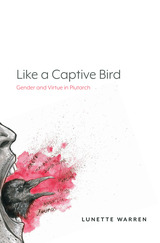
The full extent of Plutarch’s moral educational program remains largely understudied, at least in those aspects pertaining to women and the gendered other. As a result, scholarship on his views on women have differed significantly in their conclusions, with some scholars suggesting that he is overwhelmingly positive towards women and marriage and perhaps even a “precursor to feminism,” and others arguing that he was rather negative on the issue. Like a Captive Bird: Gender and Virtue in Plutarch is an examination of these educational methods employed in Plutarch’s work to regulate the expression of gender identity in women and men. In six chapters, author Lunette Warren analyzes Plutarch’s ideas about women and gender in Moralia and Lives. The book examines the divergences between real and ideal, the aims and methods of moral philosophy and psychagogic practice as they relate to identity formation, and Plutarch’s theoretical philosophy and metaphysics.
Warren argues that gender is a flexible mode of being that expresses a relation between body and soul, and that gender and virtue are inextricably entwined. Plutarch’s expression of gender is also an expression of a moral condition that signifies relationships of power, Warren claims, especially power relationships between the husband and wife. Uncovered in these texts is evidence of a redistribution of power, which allows some women to dominate other women and, in rare cases, men too. Like a Captive Bird offers a unique and fresh interpretation of Plutarch’s metaphysics which centers gender as one of the organizational principles of nature. It is aimed at scholars of Plutarch, ancient philosophy, and ancient gender studies, especially those who are interested in feminist studies of antiquity.
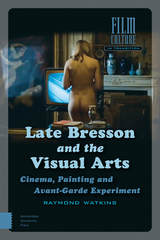


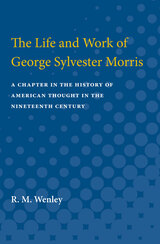


Stephen J. Whitfield makes the case for the pertinence of Brandeis University in understanding the vicissitudes of American liberalism since the mid-twentieth century. Founded to serve as a refuge for qualified professors and students haunted by academic antisemitism, Brandeis University attracted those who generally envisioned the republic as worthy of betterment. Whether as liberals or as radicals, figures associated with the university typically adopted a critical stance toward American society and sometimes acted upon their reformist or militant beliefs. This volume is not an institutional history, but instead shows how one university, over the course of seven decades, employed and taught remarkable men and women who belong in our accounts of the evolution of American politics, especially on the left. In vivid prose, Whitfield invites readers to appreciate a singular case of the linkage of political influence with the fate of a particular university in modern America.

Little Magazines - American Writers 32 was first published in 1963. Minnesota Archive Editions uses digital technology to make long-unavailable books once again accessible, and are published unaltered from the original University of Minnesota Press editions.

In recent years, as the author points out, there has been increasing interest in, and concern for, many aspects of landscape within British, European and wider contexts. This has included the study of the history, development and changes in our perception of landscape, as well as research into the links between past landscapes and political ideologies, economic and social structures, cartography, art and literature.
There is also considerable concern at present with the need to evaluate and classify historic landscapes, and to develop policies for their conservation and management in relation to their scenic, heritage and recreational value. This is manifest not only in the designation of particularly valued areas with enhanced protection from planning developments, such as national parks and world heritage sites, but in the countryside more generally. Further, Ian D. Whyte argues, changes in European Union policies relating to agriculture, with a greater concern for the protection and sustainable management of rural landscapes, are likely to be of major importance in relation to the themes of continuity and change in the landscapes of Britain and Europe.
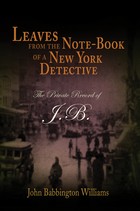
A welcome link to the chain connecting the early masters of detective fiction.... The collection offers a window into the early days of American detective fiction and the power of deductive thinking."—Sarah Weinman, Los Angeles Times
"This story collection featuring New York City private detective James Brampton will intrigue Sherlock Holmes fans, given the number of eerie parallels between the two characters."—Publishers Weekly
"It is the observation of small things that makes a good detective, for it is often the most trivial circumstance which supplies the first link in the chain." —James Brampton
Twenty years before the Sherlock Holmes mysteries were written, a fictional New York private investigator was celebrated for his ability to solve crimes based on the principles of observation and deductive reasoning that later became Holmes' hallmark. Originally published in 1864 and never before reprinted, Leaves from the Note-Book of a New York Detective features twenty-nine cases of James Brampton, the first American detective hero to appear in fiction. The book opens with a chance meeting between a medical doctor, John Babbington Williams (the actual author of the stories), and detective James Brampton. They become acquaintances, and after Brampton has retired after twenty years of service, he sends his case notebooks to Dr. Williams to be edited and published. The result is a stunning collection of intriguing mysteries, including "The Defrauded Heir," "The Phantom Face," "A Satanic Compact," and "The Walker Street Tragedy." In case after case, using his power of observation, detective Brampton is able prove the innocence of the wrongly accused. Never before reprinted, this first modern edition of this important work now takes its place once more in the development of detective fiction between Edgar Allan Poe and Arthur Conan Doyle, the casebook of the original American detective hero.
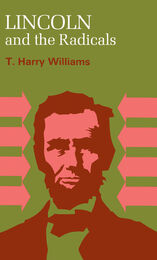


Contributors: Elise Bartosik-Vélez, Ralph Bauer, Rachel Conrad Bracken, Anna Brickhouse, John Alba Cutler, Kenya C. Dworkin y Méndez, Joshua Javier Guzmán, Anita Huizar-Hernández, Kelley Kreitz, Rodrigo Lazo, Marissa K. López, Claudia Milian, Yolanda Padilla, Juan Poblete, David Sartorius, Alberto Varon
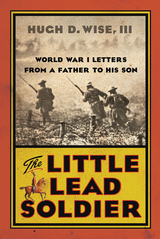
Arriving in France in April 1918, Col. Hugh D. Wise, commander of the U.S. 61st Infantry Division, held a precious object. It was a toy soldier given to him by his six-year-old son, Hugh, Jr. The boy had asked the little lead soldier to write him with news of his father. The colonel saw action in two of the most important campaigns the Americans fought, St. Mihiel and Meuse-Argonne, and the little lead soldier dutifully assured a boy thousands of miles away that his father was safe: “The men had been shelled, gassed, and raked by machine guns constantly: and undergone several intense bombardments; and made a difficult though successful attack; and had resisted a fierce counter-attack. They had dug trenches, moved, and dug again. All this time they had been without shelter, exposed to a cold driving rain and without warm food—They were wet, chilled, and tired when called upon for even greater efforts but they responded with the energy and spirit of fresh troops.” A treasured family heirloom, these wartime letters are presented for the first time along with letter from Colonel Wise to his wife, and engrossing historical context provided by his grandson, Hugh D. Wise, III. The Little Lead Soldier: World War I Letters from a Father to His Son is a remarkable story of how a father performed his dangerous duty while keeping a promise to his boy.
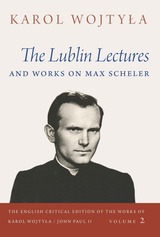
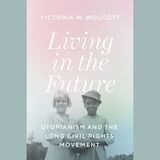
This is an auto-narrated audiobook edition of this book.
Living in the Future reveals the unexplored impact of utopian thought on the major figures of the Civil Rights Movement.
Utopian thinking is often dismissed as unrealistic, overly idealized, and flat-out impractical—in short, wholly divorced from the urgent conditions of daily life. This is perhaps especially true when the utopian ideal in question is reforming and repairing the United States’ bitter history of racial injustice. But as Victoria W. Wolcott provocatively argues, utopianism is actually the foundation of a rich and visionary worldview, one that specifically inspired the major figures of the Civil Rights Movement in ways that haven’t yet been fully understood or appreciated.
Wolcott makes clear that the idealism and pragmatism of the Civil Rights Movement were grounded in nothing less than an intensely utopian yearning. Key figures of the time, from Martin Luther King Jr. and Pauli Murray to Father Divine and Howard Thurman, all shared a belief in a radical pacificism that was both specifically utopian and deeply engaged in changing the current conditions of the existing world. Living in the Future recasts the various strains of mid-twentieth-century civil rights activism in a utopian light, revealing the power of dreaming in a profound and concrete fashion, one that can be emulated in other times that are desperate for change, like today.
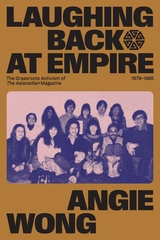


On the morning of December 4, 1972, the small north Alabama town of Scottsboro was shaken when a bomb ripped through the car of a prominent attorney. What followed were two years of unyielding
investigation resulting in the arrest of the town's wealthiest landowner. The trial that followed pitted Bill Baxley, a young, ambitious Alabama attorney general, against the state's most prominent lawyers.
Lay Down with Dogs is the story of a small southern town as it makes the transition from an agrarian hamlet to progressive New South suburbia. It is also the story of a twisted but powerful character, bent on revenge, whose motive was as enigmatic as the man himself. And it is the story of a young prosecutor, willing to risk a promising political future in order to pursue his sense of justice.
This book is not only a well-researched account but also a fascinating story of crime, the court, and the many characters brought together at one time and in one place to participate--for good or evil--in an unforgettable drama.

A Christian Science Monitor Best Nonfiction Book of the Year
“In his masterful new biography, Randall B. Woods convincingly makes the case for Johnson’s greatness—as the last American president whose leadership achieved truly revolutionary breakthroughs in progressive domestic legislation, bringing changes that have improved the lives of most Americans. In this compelling, massive narrative, Woods portrays Johnson fairly and fully in all his complexity, with adequate attention to flaws in his character and his tragic miscalculations in Vietnam.”—Nick Kotz, Washington Post Book World
“In writing LBJ: Architect of American Ambition, Woods has produced an excellent biography that fully deserves a place alongside the best of the Johnson studies yet to appear…Even readers familiar with the many other fine books on Johnson will learn a great deal from Woods…Among Woods’s many achievements in this fine biography is to allow us to see not only the enormous, tragic flaws in this extraordinary man, but also the greatness.”—Alan Brinkley, New York Times Book Review
A distinguished historian of twentieth-century America, Randall B. Woods offers a wholesale reappraisal and sweeping, authoritative account of the life of one of the most fascinating and complex U.S. presidents.


Late Quaternary Environments of the United States was first published in 1983. Minnesota Archive Editions uses digital technology to make long-unavailable books once again accessible, and are published unaltered from the original University of Minnesota Press editions.
In the late 1970s American and Russian scientists met twice in conferences on Quaternary paleoclimates sponsored by the U.S.-U.S.S.R. Bilateral Agreement on the Environment. The conferees agreed to prepare volumes summarizing the current status of research in the two countries. Late-Quaternary Environments of the United States provides a two-volume overview of new and significant information on research of the last fifteen years, since the 1965 publication of Quaternary of the United States,edited by H E. Wright, Jr., and D. G. Frey. The volume on the late Quaternary in the Soviet Union will also be published by the University of Minnesota Press.
Volume 1 of Late-Quaternary Environments of the United States covers the Late Pleistocene, the interval between 25,000 and 10,000 years ago—a time of extreme environmental stress as the world passed from full-glacial conditions of the last ice age into the present interglacial age. The interval of geologic time since the last glacial period—termed the Holocene—is the subject of Volume 2. The complexity of the natural changes occurring in the late Quaternary, and their interrelationships, make it impossible for a single scientific discipline to encompass them. Thus the papers in both volumes come from authors in many research fields—geology, ecology, physical geography, archaeology, geochemistry, geophysics, limnology, soil science, paleontology, and climatology. Many of the hypotheses presented—especially on the dynamic Late Pleistocene environments—are still hotly debated and will require additional testing as scientists strive to reconstruct the changing world of the glacial and postglacial ages.

A modern reframing of Friedrich Hayek’s most famous work for the 21st century.
Friedrich Hayek’s The Road to Serfdom was both an intellectual milestone and a source of political division, spurring fiery debates around capitalism and its discontents. In the ensuing discord, Hayek’s true message was lost: liberalism is a thing to be protected above all else, and its alternatives are perilous.
In Liberalism’s Last Man, Vikash Yadav revives the core of Hayek’s famed work to map today’s primary political anxiety: the tenuous state of liberal meritocratic capitalism—particularly in North America, Europe, and Asia—in the face of strengthening political-capitalist powers like China, Vietnam, and Singapore. As open societies struggle to match the economic productivity of authoritarian-capitalist economies, the promises of a meritocracy fade; Yadav channels Hayek to articulate how liberalism’s moral backbone is its greatest defense against repressive social structures.


Planned and designed by a leading Tokyo lawyer and several American practitioners and scholars, Law and Investment in Japan introduces both Japanese law and the strategic issues that arise in cross-border transactions. Centered around the details of an actual joint venture between the U.S. and Japan, the book combines materials from the transaction itself with cases, statutes, and background data.
This new second edition reflects recent changes in the law and new directions in scholarly research.
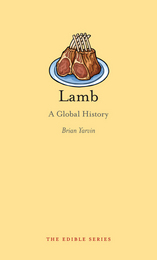
Starting with the earliest days of lamb and sheep farming in the ancient Middle East, Yarvin traces the spread of lamb to cooks in ancient Rome and Greece. He details the earliest recorded meals involving lamb in the Zagros Mountains of Iraq and Iran, explores its role in Renaissance banquets in Italy, and follows its path to China, India, and even Navajo tribes in America. Taking his story up to the present, Yarvin considers the growing locavore movement, one that has found in lamb a manageable, sustainable source of healthy—and tasty—protein. Richly illustrated and peppered with recipes, Lamb will be the perfect accompaniment to your next grilled chop or braised shank.
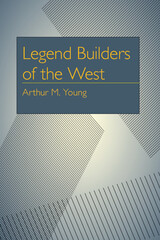
Young examines nine legends-Perseus and Andromeda; Demeter and Persephone; Pyramus and Thisbe; Pygmalion and Galatea; Daedalus and Icarus; Atlanta and Hippomenes; Philemon and Baucis; Echo and Narcissus; and Pomona and Vertumnus-explaining the legends themselves and tracing their dissemination through centuries and civilizations and across various art forms. In Young's view, classical mythology, through expressing humanity's enthusiasms, visions, and talents, might well be considered the “skilled midwife” of human civilization, proof of our constant effort to possess life symbolically and express it through arts.
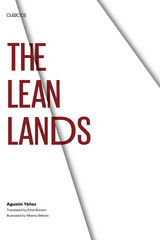
What was it that flew over with such a terrifying roar? Was it, as many said, the devil, or was it that thing a few had heard of, a flying machine? And those electric lights at Jacob Gallo’s farm, were they witchcraft or were they science?
The theme of this harshly powerful novel is the impact of modern technology and ideas on a few isolated, tradition-bound hamlets in the aftermath of the Mexican Revolution of 1910. The old ways are represented by Epifanio Trujillo, the cacique of the region, now ailing and losing his grip on things; by ancient Madre Matiana, the region’s midwife, healer, counselor, and oracle; by penniless Rómulo and his wife Merced. “Progress” is represented by Don Epifanio’s bastard son Jacob, who acquired money and influence elsewhere during the Revolution and who now, against his father’s will, brings electricity, irrigation, fertilizers, and other modernities to the lean lands—together with armed henchmen. The conflict between the old and the new builds slowly and inexorably to a violent climax that will long remain in the reader’s memory.
The author has given psychological and historical depth to his story by alternating the passages of narrative and dialogue with others in which several of the major characters brood on the past, the present, and the future. For instance, Matiana, now in her eighties, touchingly remembers how she was married and widowed before she had reached her seventeenth birthday. This dual technique is superbly handled, so that people and events have both a vivid actuality and an inner richness of meaning. The impact of the narrative is intensified by the twenty-one striking illustrations by Alberto Beltrán.
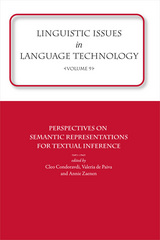

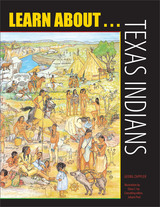
Here is an entertaining and educational activity book for children from six to twelve on the always-popular topic of American Indians—except that the subject has been narrowed to only those Native Americans known to have lived in the Lone Star State.
Eye-catching line drawings invite children to color a wide assortment of scenes from the diverse lives of the many different groups of Indians native to Texas. The settings in the first part of the book range from the mammoth- and bison-hunting Paleo-Indians of over 11,000 years ago to the various nomadic and agricultural groups encountered by sixteenth-century Spanish explorers. Further drawings reflect changes over the centuries as Indian lifeways were forever altered and often destroyed due to contact with white newcomers who all claimed their land. In addition to the many drawings, a number of fun-filled and challenging games help build youngsters' Indian knowledge.
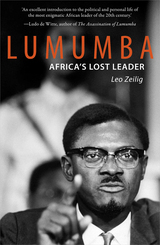
This second edition of the only full biography of Lumumba presents his life and quest for the Congo’s liberation, which influenced how the Cold War would be fought in Africa and the nature of the independence granted to huge swaths of the globe after 1945. For those fighting for freedom, Lumumba became a figure of resistance against the imperial colonizers of the world. Including new archival material and information gained from British intelligence, this new edition is a valuable introduction to a pivotal figure of the twentieth century.
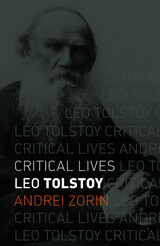
In this original and comprehensive biography, Andrei Zorin skillfully pieces together the life of one of the greatest novelists of all time. He offers both an innovative account of Tolstoy’s deepest feelings, emotions, and motives, as reflected in his personal diaries and letters, and a brilliant interpretation of his major works, including his celebrated novels on contemporary Russian society, War and Peace and Anna Karenina, and his significant philosophical writings.

From the eighth floor of a tower block in Central Europe, Jan Zábrana surveyed the twentieth century. He had been exiled from his own life by Communism. His parents were imprisoned, their health was broken, and he was not allowed to study languages in college. Refusing both to rebel outright or to cave in, he thought of himself as a dead man walking. “To all those who keep asking me to do things for them, I sometimes feel like saying: ‘But I’m dead. I died long ago. Why do you keep treating me as if I were one of the living?’”
Yet during some of Europe’s most difficult years, he wrote The Lesser Histories, a collection of sixty-four sonnets that range through themes of age, sex, and political repression—a radiant testament to his times. The lines are emptied both of personal pathos and political stridency. Often Zábrana’s own voice segues into those of poets he had translated over the years, leaving only a bare shimmer of subjectivity—humorous, oblique, pained—with which to view his own works and days. The poems document a splendid and bitter isolation, and are immersed in the humor, hatreds, and loves of the everyday. Published in Czech in the ill-fated year of 1968, they subsequently fell into neglect. After the fall of Communism in 1989, Zábrana’s collected poems and selected diaries were published in Czech, and he was acclaimed as a major twentieth-century writer. Now, with this collection, he can begin to reach English-language readers for the first time.
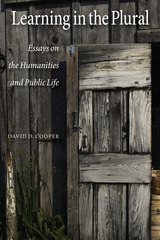
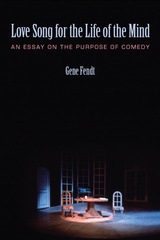
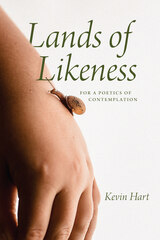
In Lands of Likeness, Kevin Hart develops a new hermeneutics of contemplation through a meditation on Christian thought and secular philosophy. Drawing on Kant, Schopenhauer, Coleridge, and Husserl, Hart first charts the emergence of contemplation in and beyond the Romantic era. Next, Hart shows this hermeneutic at work in poetry by Gerard Manley Hopkins, Marianne Moore, Wallace Stevens, and others. Delivered in its original form as the prestigious Gifford Lectures, Lands of Likeness is a revelatory meditation on contemplation for the modern world.

For this first English edition of his distinguished study of Pythagoreanism, Weisheit und Wissenschajt: Studien zu Pythagoras, Philolaos, und Platon, Walter Burkert has carefully revised text and notes, taking account of additional literature on the subject which appeared between 1962 and 1969.
By a thorough critical sifting of all the available evidence, the author lays a new foundation for the understanding of ancient Pythagoreanism and in particular of the relationship within it of “lore” and “science.” He shows that in the twilight zone when the Greeks were discovering the rational interpretation of the world and quantitative natural science, Pythagoras represented not the origin of the new, but the survival or revival of ancient, pre-scientific lore or wisdom, based on superhuman authority and expressed in ritual obligation.

Platonic forms of love.
Plato of Athens, who laid the foundations of the Western philosophical tradition and in range and depth ranks among its greatest practitioners, was born to a prosperous and politically active family circa 427 BC. In early life an admirer of Socrates, Plato later founded the first institution of higher learning in the West, the Academy, among whose many notable alumni was Aristotle. Traditionally ascribed to Plato are thirty-five dialogues developing Socrates’ dialectic method and composed with great stylistic virtuosity, together with the Apology and thirteen letters.
The three works in this volume, though written at different stages of Plato’s career, are set toward the end of Socrates’ life (from 416) and explore the relationship between two people known as love (erōs) or friendship (philia). In Lysis, Socrates meets two young men exercising in a wrestling school during a religious festival. In Symposium, Socrates attends a drinking party along with several accomplished friends to celebrate the young tragedian Agathon’s victory in the Lenaia festival of 416: the topic of conversation is love. And in Phaedrus, Socrates and his eponymous interlocutor escape the midsummer heat of the city to the banks of the river Ilissus, where speeches by both on the subject of love lead to a critical discussion of the current state of the theory and practice of rhetoric.
This edition, which replaces the original Loeb editions by Sir Walter R. M. Lamb and by Harold North Fowler, offers text, translation, and annotation that are fully current with modern scholarship.
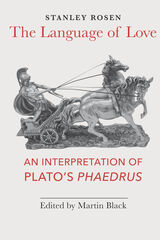
Here Rosen’s argue for the possibility of philosophy or the retrieval of human self-knowledge on the basis of a renewed argument for the partial intelligibility of ordinary experience or, in other words, for the Platonic Ideas. His book on the Symposium was an important contribution to the subsequent sea change in Plato scholarship that returned attention to the dialogue form and to the poetic side of philosophy even in its quarrel with philosophy. That change allowed us search for understanding in the light of the whole, a whole which is otherwise, as Rosen has shown elsewhere, fragmented by the scientism of analytical philosophy or the historicism of “Continental” philosophy.
The Language of Love represents a missing key to Stanley Rosen’s work and, much more significantly, to the rediscovery of philosophy in our time. The title of the book is not merely a play on words. It points to the incommensurability between the constructed or historical nature of language or culture and the pre-discursive apprehension of things that is necessary if speech is to make sense and be understood, as opposed to being mere nonsense.
Among many valuable insights along the way, Rosen unites the dialogue in two parts, treating both eros and rhetoric, showing the linkage between eros and writing, as between myth and analysis. He connects the comic attempt to subject eros to diaeresis in the Phaedrus with the attempt to understand non-being as an eidos in the Sophist. In both cases, the inadequacy of a technical understanding of philosophy returns us to the pre-technical world of ordinary experience.
Rosen’s interpretation is an expression of the Socratic claim that we can’t speak beautifully without knowing the truth and that whatever truth we speak or write is a reflection of the silent invisibility of beauty as the unity of form. However, “Like every good teacher, it does not simply state that link for us to memorize. Instead, we must recollect it.”
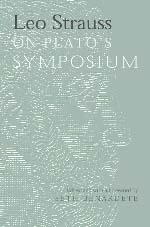
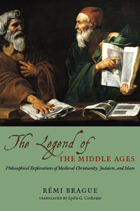
This volume presents a penetrating interview and sixteen essays that explore key intersections of medieval religion and philosophy. With characteristic erudition and insight, RémiBrague focuses less on individual Christian, Jewish, and Muslim thinkers than on their relationships with one another. Their disparate philosophical worlds, Brague shows, were grounded in different models of revelation that engendered divergent interpretations of the ancient Greek sources they held in common. So, despite striking similarities in their solutions for the philosophical problems they all faced, intellectuals in each theological tradition often viewed the others’ ideas with skepticism, if not disdain. Brague’s portrayal of this misunderstood age brings to life not only its philosophical and theological nuances, but also lessons for our own time.
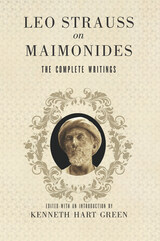
With Leo Strauss on Maimonides, Kenneth Hart Green presents for the first time a comprehensive, annotated collection of Strauss’s writings on Maimonides, comprising sixteen essays, three of which appear in English for the first time. Green has also provided careful translations of materials that had originally been quoted in Hebrew, Arabic, Latin, German, and French; written an informative introduction highlighting the original contributions found in each essay; and brought references to out-of-print editions fully up to date. The result will become the standard edition of Strauss’s writings on Maimonides.

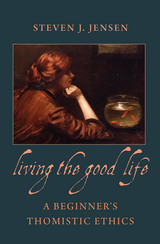
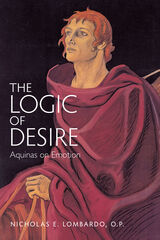

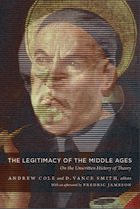
In The Legitimacy of the Middle Ages, modernists and medievalists, as well as scholars specializing in eighteenth-, nineteenth-, and twentieth-century comparative literature, offer a new history of theory and philosophy through essays on secularization and periodization, Marx’s (medieval) theory of commodity fetishism, Heidegger’s scholasticism, and Adorno’s nominalist aesthetics. One essay illustrates the workings of medieval mysticism in the writing of Freud’s most famous patient, Daniel Paul Schreber, author of Memoirs of My Nervous Illness (1903). Another looks at Michael Hardt and Antonio Negri’s Empire, a theoretical synthesis whose conscientious medievalism was the subject of much polemic in the post-9/11 era, a time in which premodernity itself was perceived as a threat to western values. The collection concludes with an afterword by Fredric Jameson, a theorist of postmodernism who has engaged with the medieval throughout his career.
Contributors: Charles D. Blanton, Andrew Cole, Kathleen Davis, Michael Hardt, Bruce Holsinger, Fredric Jameson, Ethan Knapp, Erin Labbie, Jed Rasula, D. Vance Smith, Michael Uebel

Logical empiricism, a program for the study of science that attempted to provide logical analyses of the nature of scientific concepts, the relation between evidence and theory, and the nature of scientific explanation, formed among the famed Vienna and Berlin Circles of the 1920s and '30s and dominated the philosophy of science throughout much of the twentieth century. In recent decades, a "post-positivist" philosophy, deriding empiricism and its claims in light of more recent historical and sociological discoveries, has been the ascendant mode of philosophy and other disciplines in the arts and sciences.
This book features original research that challenges such broad oppositions. In eleven essays, leading scholars from many nations construct a more nuanced understanding of logical empiricism, its history, and development, offering promising implications for current philosophy of science debates.
Tapping rich resources of unpublished material from archives in Haarlem, Konstanz, Pittsburgh, and Vienna, contributors conduct a deep investigation into the origins and development of the Vienna and Berlin Circles. They expose the roots of the philosophy in such varied sources as Cassirer, Poincaire, Husserl, Heidegger, and Wittgenstein. Important connections between the empiricists and other movements--neo-empiricism, British empiricism--are vigorously explored.
Building on these historical studies, a critical reevaluation emerges that shrinks the distance between old and new philosophers of science, between "analytic" and "Continental" philosophy. A number of compelling recent debates, including those involving Kuhn, Feyerabend, Hesse, Glymour, and Hanson, are reopened to show the ways in which logical empiricist theory can still be validly applied.
Logical Empiricism is the result of a remarkable conference, convened in the spirit of reflection and international cooperation, that took place in Florence, Italy, in 1999.
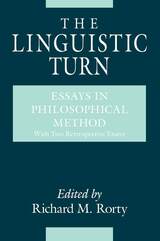
"All too rarely an anthology is put together that reflects imagination, command, and comprehensiveness. Rorty's collection is just such a book."—Review of Metaphysics

The Limits of Utilitarianism was first published in 1982. Minnesota Archive Editions uses digital technology to make long-unavailable books once again accessible, and are published unaltered from the original University of Minnesota Press editions.
Many philosophers have argued that utilitarianism is an unacceptable moral theory and that promoting the general welfare is at best only one of the legitimate goals of public policy. Utilitarian principles seem to place no limits on the extent to which society may legitimately interfere with a person's liberties - provided that such actions can be shown to promote the long-term welfare of its members. These issues have played a central role in discussions of utilitarianism since the time of Bentham and Mill. Despite criticisms, utilitarianism remains the most influential and widely accepted moral theory of recent times.
In this volume contemporary philosophers address four aspects of utilitarianism: the principle of utility; utilitarianism vis-à-vis contractarianism; welfare; and voluntary cooperation and helping others. The editors provide an introduction and a comprehensive bibliography that covers all books and articles published in utilitarianism since 1930.
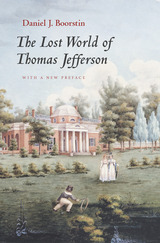
"The volume is too subtle, too rich in ideas for anyone to do justice to it in brief summary, too heavily documented and too carefully wrought for anyone to dismiss its thesis. . . . It is a major contribution not only to Jefferson studies but to American intellectual history. . . . All who work in the history of ideas will find themselves in Mr. Boorstin's debt."—Richard Hofstadter, South Atlantic Monthly
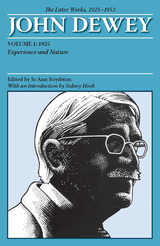
John Dewey’s Experience and Nature has been considered the fullest expression of his mature philosophy since its eagerly awaited publication in 1925.Irwin Edman wrote at that time that “with monumental care, detail and completeness, Professor Dewey has in this volume revealed the metaphysical heart that beats its unvarying alert tempo through all his writings, whatever their explicit themes.” In his introduction to this volume, Sidney Hook points out that “Dewey’s Experience and Nature is both the most suggestive and most difficult of his writings.”
The meticulously edited text published here as the first volume in the series The Later Works of John Dewey, 1925–1953spans that entire period in Dewey’s thought by including two important and previously unpublished documents from the book’s history: Dewey’s unfinished new introduction written between 1947and 1949,edited by the late Joseph Ratner, and Dewey’s unedited final draft of that introduction written the year before his death. In the intervening years Dewey realized the impossibility of making his use of the word “experience” understood. He wrote in his 1951draft for a new introduction: “Were I to write (or rewrite) Experience and Nature today I would entitle the book Culture and Nature and the treatment of specific subject-matters would be correspondingly modified. I would abandon the term ‘experience’ because of my growing realization that the historical obstacles which prevented understanding of my use of ‘experience’ are, for all practical purposes, insurmountable. I would substitute the term ‘culture’ because with its meanings as now firmly established it can fully and freely carry my philosophy of experience.”
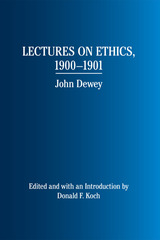
In Lectures on Ethics, 1900–1901,Donald F. Koch supplies the only extant complete transcription of the annual three-course sequence on ethics John Dewey gave at the University of Chicago.
In his introduction Koch argues that these lectures offer the best systematic, overall introduction to Dewey’s approach to moral philosophy and are the only account showing the unity of his views in nearly all phases of ethical inquiry. These lectures are the only work by Dewey to set forth a complete theory of moral language. They offer a clear illustration of the central methodological questions in the development of a pragmatic instrumentalist ethic and the actual working out of the instrumentalist approach as distinct from simply presenting it as a conclusion.
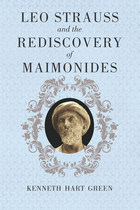
An invaluable companion to Green’s comprehensive collection of Strauss’s writings on Maimonides, this volume shows how Strauss confronted the commonly accepted approaches to the medieval philosopher, resulting in both a new understanding of Maimonides and a new depth and direction for his own thought. It will be welcomed by anyone engaged with the work of either philosopher.
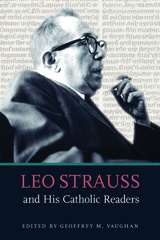
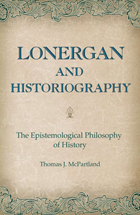
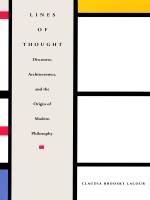
While Cartesianism has long served as a synonym for rationalism, the contents of Descartes’s method and cogito have remained infamously resistant to rational analysis. Similarly, although modern phenomenological analyses descend from Descartes’s notion of intuition, the “things” Cartesian intuitions represent bear no resemblance to phenomena. By returning to what Descartes calls the construction of his “foundation” in the Discours, Brodsky Lacour identifies the conceptual problems at the root of Descartes’s literary and aesthetic theory as well as epistemology. If, for Descartes, linear extension and “I” are the only “things” we can know exist, the Cartesian subject of thought, she shows, derives first from the intersection of discourse and drawing, representation and matter. The crux of that intersection, Brodsky Lacour concludes, is and must be the cogito, Descartes’s theoretical extension of thinking into material being. Describable in accordance with the Géométrie as a freely constructed line of thought, the cogito, she argues, extends historically to link philosophy with theories of discursive representation and graphic delineation after Descartes. In conclusion, Brodsky Lacour analyzes such a link in the writings of Claude Perrault, the architectural theorist whose reflections on beauty helped shape the seventeenth-century dispute between “the ancients and the moderns.”
Part of a growing body of literary and interdisciplinary considerations of philosophical texts, Lines of Thought will appeal to theorists and historians of literature, architecture, art, and philosophy, and those concerned with the origin and identity of the modern.
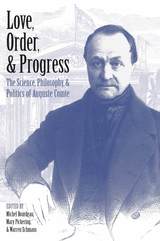

In his Nobel Prize acceptance speech, Albert Camus declared that a writer's duty is twofold: "the refusal to lie about what one knows and the resistance against oppression." These twin obsessions help explain something of Camus' remarkable character, which is the overarching subject of this sympathetic and lively book. Through an exploration of themes that preoccupied Camus--absurdity, silence, revolt, fidelity, and moderation--Robert Zaretsky portrays a moralist who refused to be fooled by the nobler names we assign to our actions, and who pushed himself, and those about him, to challenge the status quo.
Though we do not face the same dangers that threatened Europe when Camus wrote The Myth of Sisyphus and The Stranger, we confront other alarms. Herein lies Camus' abiding significance. Reading his work, we become more thoughtful observers of our own lives. For Camus, rebellion is an eternal human condition, a timeless struggle against injustice that makes life worth living. But rebellion is also bounded by self-imposed constraints--it is a noble if impossible ideal. Such a contradiction suggests that if there is no reason for hope, there is also no occasion for despair--a sentiment perhaps better suited for the ancient tragedians than modern political theorists but one whose wisdom abides. Yet we must not venerate suffering, Camus cautions: the world's beauty demands our attention no less than life's train of injustices. That recognition permits him to declare: "It was the middle of winter, I finally realized that, within me, summer was inextinguishable."
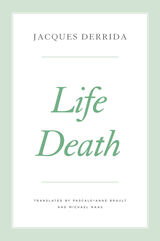
One of Jacques Derrida’s most provocative works, Life Death deconstructs a deeply rooted dichotomy of Western thought: life and death. In rethinking the relationship between life and death, Derrida undertakes a multi-disciplinary analysis of a range of topics across philosophy, linguistics, and the life sciences. Derrida gave this seminar over fourteen sessions between 1975 and 1976 at the École normale supérieure in Paris to prepare students for the agrégation, a notoriously competitive exam. The theme for the exam that year was “Life and Death,” but Derrida made a critical modification to the title by dropping the coordinating conjunction. The resulting title of Life Death poses a philosophical question about the close relationship between life and death. Through close readings of Freudian psychoanalysis, the philosophy of Nietzsche and Heidegger, French geneticist François Jacob, and epistemologist Georges Canguilhem, Derrida argues that death must be considered neither as the opposite of life nor as the truth or fulfillment of it, but rather as that which both limits life and makes it possible. Derrida thus not only questions traditional understandings of the relationship between life and death but also ultimately develops a new way of thinking about what he calls “life death.”
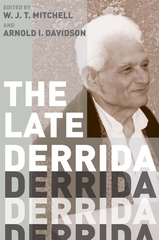
The rubric “The Late Derrida,” with all puns and ambiguities cheerfully intended, points to the late work of Jacques Derrida, the vast outpouring of new writing by and about him in the period roughly from 1994 to 2004. In this period Derrida published more than he had produced during his entire career up to that point. At the same time, this volume deconstructs the whole question of lateness and the usefulness of periodization. It calls into question the “fact” of his turn to politics, law, and ethics and highlights continuities throughout his oeuvre.
The scholars included here write of their understandings of Derrida’s newest work and how it impacts their earlier understandings of such classic texts as Glas and Of Grammatology. Some have been closely associated with Derrida since the beginning—both in France and in the United States—but none are Derrideans. That is, this volume is a work of critique and a deep and continued engagement with the thought of one of the most significant philosophers of our time. It represents a recognition that Derrida’s work has yet to be addressed—and perhaps can never be addressed—in its totality.
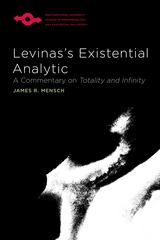
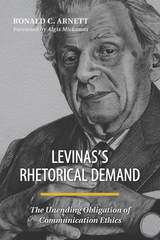
Distinguished Book Award, Philosophy of Communication Division, National Communication Association, 2017
Top Book Award, Communication Ethics Division, National Communication Association, 2017
Philosopher Emmanuel Levinas’s ethics as first philosophy explicates a human obligation and responsibility to and for the Other that is an unending and imperfect commitment. In Levinas’s Rhetorical Demand: The Unending Obligation of Communication Ethics, Ronald C. Arnett underscores the profundity of Levinas’s insights for communication ethics.Arnett outlines communication ethics as a primordial call of responsibility central to Levinas’s writing and mission, analyzing it through a Levinasian lens with examination of social artifacts ranging from the Heidegger-Cassirer debate to Rupert Murdoch’s News of the World story concerning illicit possession of information.
Levinas’s Rhetorical Demand offers an account of Levinas’s project and the pragmatic implications of attending to a call of responsibility to and for the Other. This book yields a rich and nuanced understanding of Levinas’s work, revealing the practical importance of his insights, and including a discussion of related theorists and thinkers.

The philosophy of Emmanuel Levinas affirms both the urgency of peace and the fact that peace is never finally assured. This tension is a question of responsibility and of the ethical relation in which that responsibility is grounded. Jeffrey Bloechl pursues this prophetic dimension of Levinas’s philosophy—his commitment to phenomenology and to a philosophy of religion—to make the case for the mutual reinforcement and intelligibility of these two threads.
Levinas on the Primacy of the Ethical traces the emergence of Levinas’s early thought in relation to modern political philosophy, his revision of Martin Heidegger’s existential phenomenology, the consolidation of his mature position, his important differences with Freudian psychoanalysis, the turn from metaphysics to language in his later philosophy, and his complex relationship with Christian theology. Starting with an exposition of how positive notions of religious transcendence are already present in some of Levinas’s early phenomenological texts, Bloechl then stakes the reverse claim: that Levinas’s conception of God is dependent on his existential phenomenology. Proceeding chronologically, but with frequent nods to later developments, this book builds toward the ultimate assertion that Levinas offers us a phenomenology of event and of relation without appeal to any foundation, ground, or causal principle. Only in this way is Levinas able to generate an argument—and not merely an exhortation—for the primacy of the ethical as he conceives it.
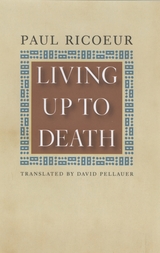
When French philosopher Paul Ricoeur died in 2005, he bequeathed to the world a highly regarded, widely influential body of work which established him as one of the greatest thinkers of our time. He also left behind a number of unfinished projects that are gathered here and translated into English for the first time.
Living Up to Death consists of one major essay and nine fragments. Composed in 1996, the essay is the kernel of an unrealized book on the subject of mortality. Likely inspired by his wife’s approaching death, it examines not one’s own passing but one’s experience of others dying. Ricoeur notes that when thinking about death the imagination is paramount, since we cannot truly experience our own passing. But those we leave behind do, and Ricoeur posits that the idea of life after death originated in the awareness of our own end posthumously resonating with our survivors.
The fragments in this volume were written over the course of the last few months of Ricoeur’s life as his health failed, and they represent his very last work. They cover a range of topics, touching on biblical scholarship, the philosophy of language, and the idea of selfhood he first addressed in Oneself as Another. And while they contain numerous philosophical insights, these fragments are perhaps most significant for providing an invaluable look at Ricoeur’s mind at work.
As poignant as it is perceptive, Living Up to Death is a moving testimony to Ricoeur’s willingness to confront his own mortality with serious questions, a touching insouciance, and hope for the future.

The inspiring letters of philosopher, mystic, and freedom fighter Simone Weil to her family, presented for the first time in English.
Now in the pantheon of great thinkers, Simone Weil (1909–1943) lived largely in the shadows, searching for her spiritual home while bearing witness to the violence that devastated Europe twice in her brief lifetime. The letters she wrote to her parents and brother from childhood onward chart her intellectual range as well as her itinerancy and ever-shifting preoccupations, revealing the singular personality at the heart of her brilliant essays.
The first complete collection of Weil’s missives to her family, A Life in Letters offers new insight into her personal relationships and experiences. The letters abound with vivid illustrations of a life marked by wisdom as much as seeking. The daughter of a bourgeois Parisian Jewish family, Weil was a troublemaking idealist who preferred the company of miners and Russian exiles to that of her peers. An extraordinary scholar of history and politics, she ultimately found a home in Christian mysticism. Weil paired teaching with poetry and even dabbled in mathematics, as evidenced by her correspondence with her brother, André, who won the Kyoto Prize in 1994 for the famed Weil Conjectures.
A Life in Letters depicts Simone Weil’s thought taking shape amid political turmoil, as she describes her participation in the Spanish struggle against fascism and in the transatlantic resistance to the Nazis. An introduction and notes by Robert Chenavier contextualize the letters historically and intellectually, relating Weil’s letters to her general body of writing. This book is an ideal entryway into Weil’s philosophical insights, one for both neophytes and acolytes to treasure.
READERS
Browse our collection.
PUBLISHERS
See BiblioVault's publisher services.
STUDENT SERVICES
Files for college accessibility offices.
UChicago Accessibility Resources
home | accessibility | search | about | contact us
BiblioVault ® 2001 - 2024
The University of Chicago Press









